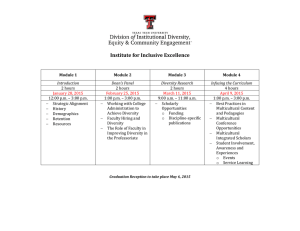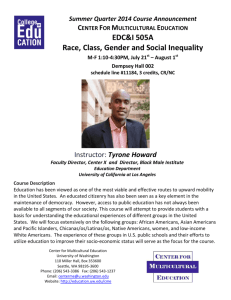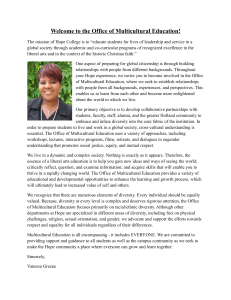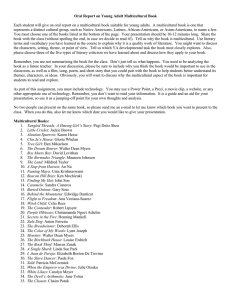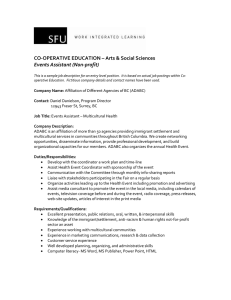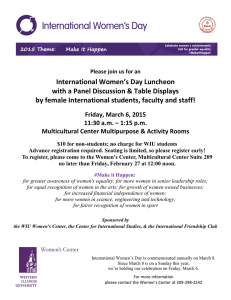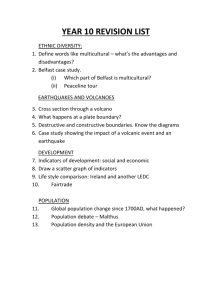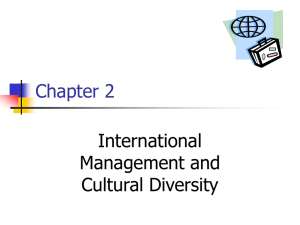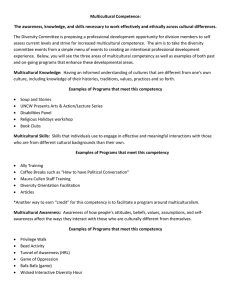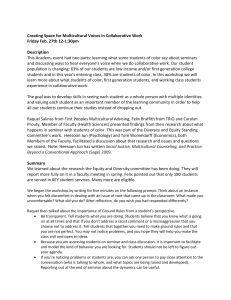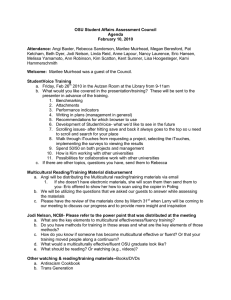Misconceptions about Multicultural Education A Graphic Discussion
advertisement
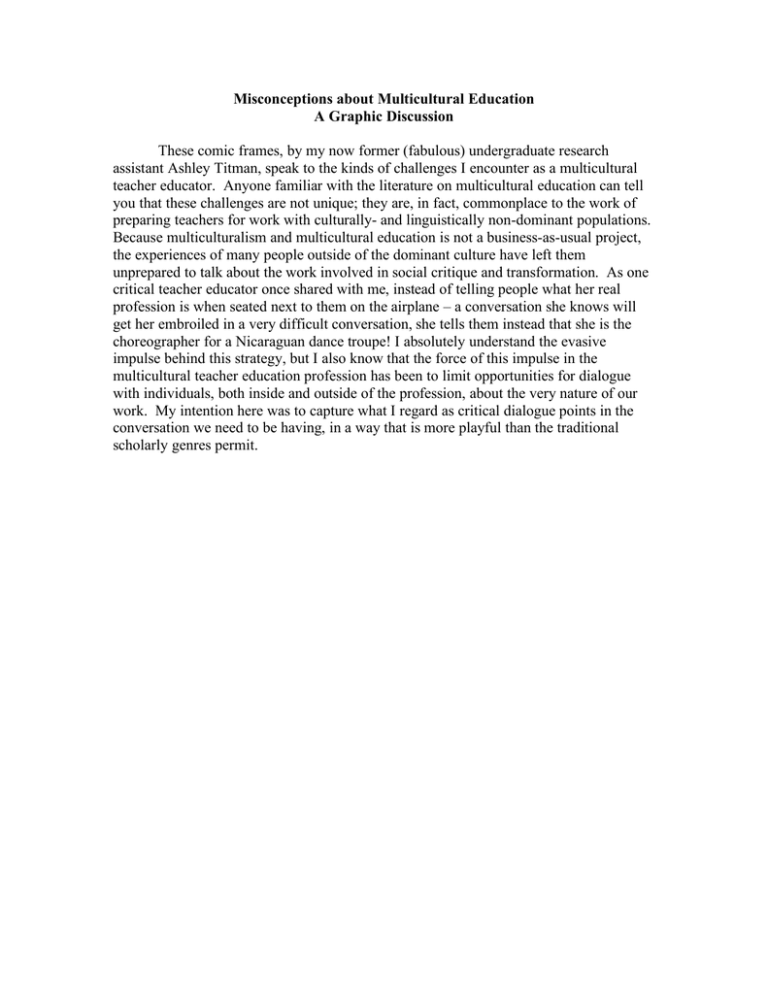
Misconceptions about Multicultural Education A Graphic Discussion These comic frames, by my now former (fabulous) undergraduate research assistant Ashley Titman, speak to the kinds of challenges I encounter as a multicultural teacher educator. Anyone familiar with the literature on multicultural education can tell you that these challenges are not unique; they are, in fact, commonplace to the work of preparing teachers for work with culturally- and linguistically non-dominant populations. Because multiculturalism and multicultural education is not a business-as-usual project, the experiences of many people outside of the dominant culture have left them unprepared to talk about the work involved in social critique and transformation. As one critical teacher educator once shared with me, instead of telling people what her real profession is when seated next to them on the airplane – a conversation she knows will get her embroiled in a very difficult conversation, she tells them instead that she is the choreographer for a Nicaraguan dance troupe! I absolutely understand the evasive impulse behind this strategy, but I also know that the force of this impulse in the multicultural teacher education profession has been to limit opportunities for dialogue with individuals, both inside and outside of the profession, about the very nature of our work. My intention here was to capture what I regard as critical dialogue points in the conversation we need to be having, in a way that is more playful than the traditional scholarly genres permit.
